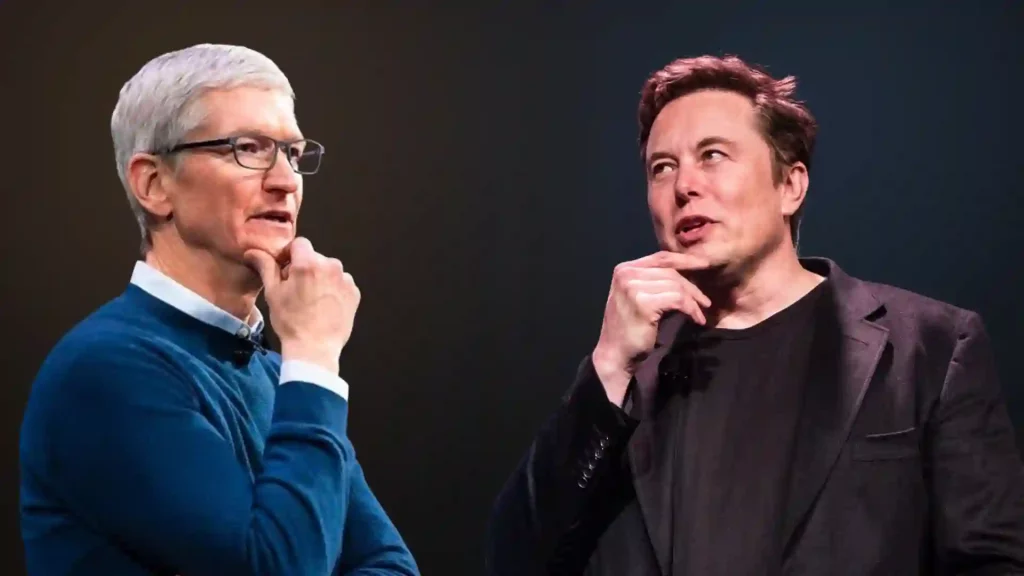Apple Is The New Target of Elon Musk
Controversy and Elon Musk seem to be synonymous. After the Twitter takeover and subsequent mass layoffs, Musk has found a new target to direct his frustration against. It’s Apple. The root cause of Elon Musk’s outburst against Apple and Tim Cook seems to be the fact that the latter has stopped publishing ads on Twitter.
The Elon Musk Vs. Apple Saga: Here’s the Story So Far
November 28: Musk reveals that Apple had stopped running ads on Twitter. He asks, “What’s going on here, Tim Cook?” On November 28, Elon Musk posted that Apple had stopped advertising on Twitter. Somehow, Elon Musk felt that stopping advertisements on Twitter is equivalent to hating free speech. So in the same Tweet, he asked whether Apple hated free speech in America.
However, why Musk singled out Apple is yet to be known. According to this USA Today news, almost half of the top advertisers who used to publish ads on Twitter have stopped doing so. The list includes companies that are as reputed as Apple. Companies like General Motors, Ford, Jeep, and General Mills have paused their ads on Twitter.
Volkswagen, it seems, is on a similar path. The common reason behind the advertisers’ pausing of ads is the fact that all these companies are concerned about Twitter’s lack of content moderation policies. According to Elon Musk, strict content moderation is equivalent to curbing free speech. And since the most probable reason behind Apple’s pulling of ads from Twitter is the lack of content moderation, Musk automatically equates the company as the enemy of free speech.
Elon Musk further gave the example of LBRY – a decentralised social network. LBRY alleged that Apple asked it to stop showing results for certain search terms related to Covid-19, or else LBRY risked the possibility of getting pulled from the APP store. While those ‘certain search terms’ had not been discussed by LBRY in detail, it seems that searches related to conspiracy theories about the pandemic were censored.
The usage of the hate symbol – Pepe, The Frog on LBRY was also objected to by Apple. November 29: Musk Alleged That Apple Had Threatened Twitter To Pull The App From The App Store As of today, the truth behind this allegation has not been corroborated by Apple. However, given the fact that other loosely moderated social networking apps like Truth Social are still there in the App Store, the possibility of Twitter getting pulled is low.
So How Is Elon Musk Both Right and Wrong?
When Elon Musk says that Apple is against free speech because the latter has pulled its advertisements, most people understand that it makes perfect business sense to distance itself from the social network, which can result in bad PR. In this respect, Musk is wrong to say that Apple hates free speech.
However, Apple Is Not a Friend of Free Speech Either. Look at China Apple’s airdrop feature was being used by the Chinese people to protest against the authoritarian regime of Xi Jinping and the harsh lockdown measures. Using this feature, Chinese users could spread content and messages among themselves freely without using the internet (thus, zero moderation).
This enabled protesters to keep their airdrop in always-on mode to receive content from other protesters. However, in November, Apple released a China-only update that limited this feature. Protesters can now keep the airdrop feature on for 10 minutes. After that, it automatically gets shut down.
In other parts of the world, the airdrop feature can be kept on for as long as one wants. Apple, it seems, is trying hard to be on the good books of Xi Jinping to the detriment of the protesters’ morale. Nothing is black and white when it comes to politics, legality and Elon Musk.
